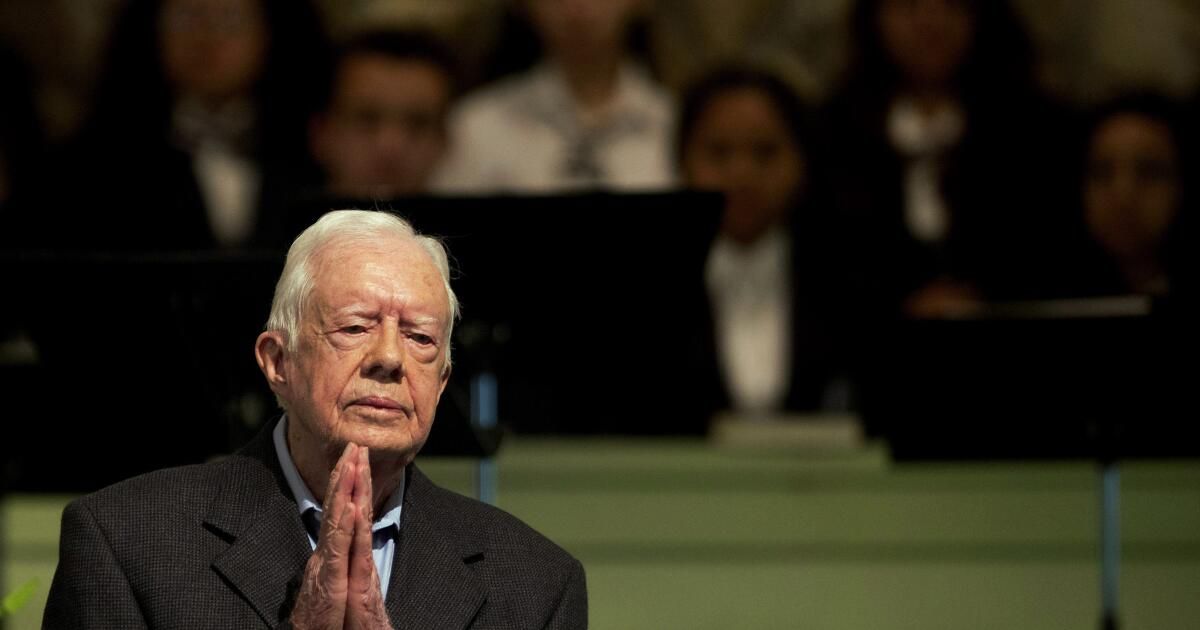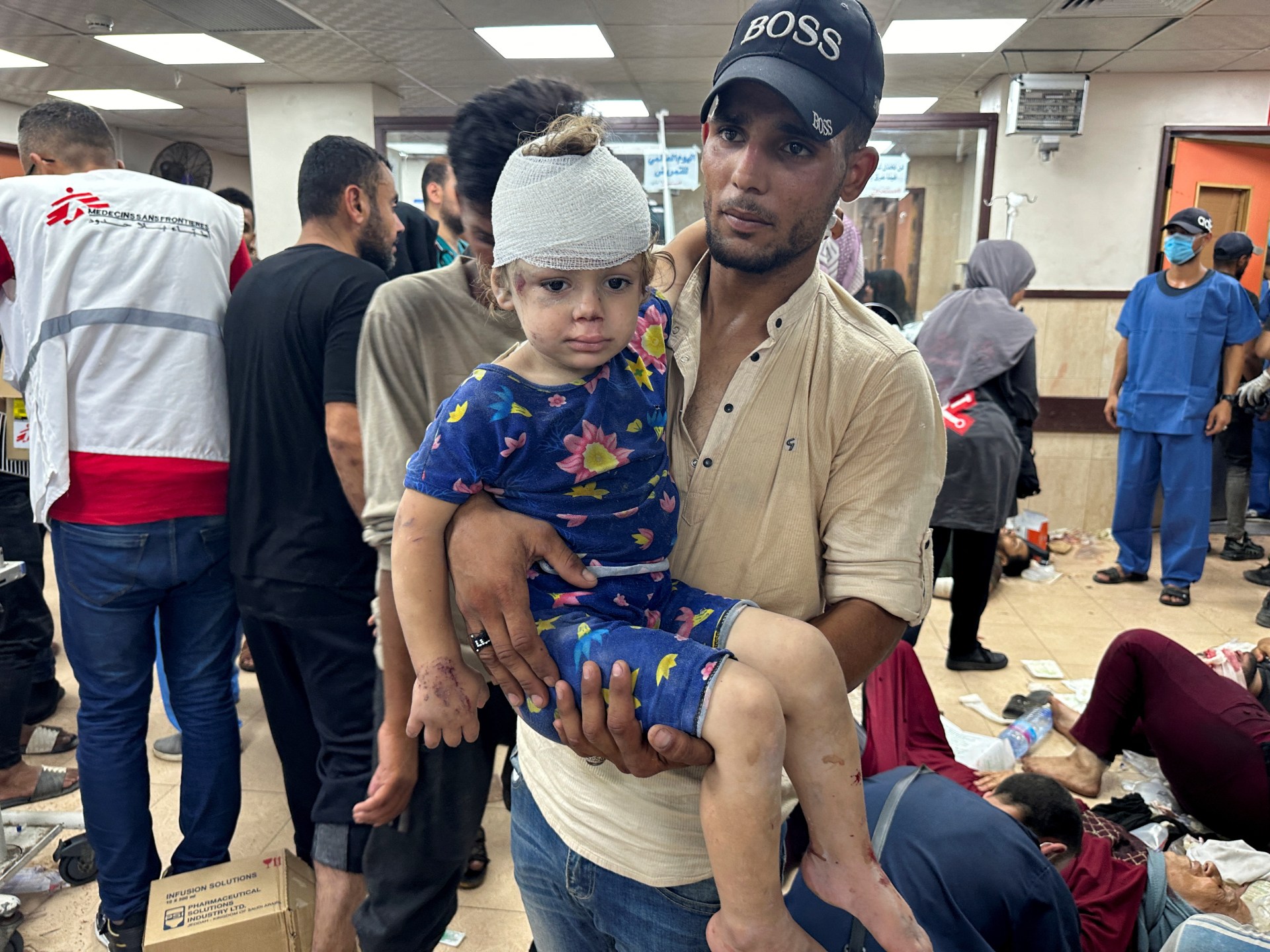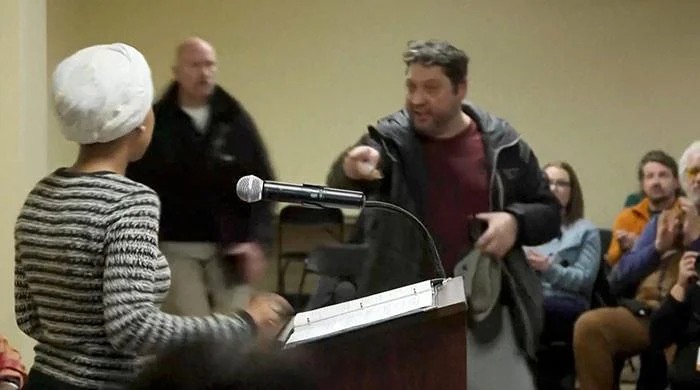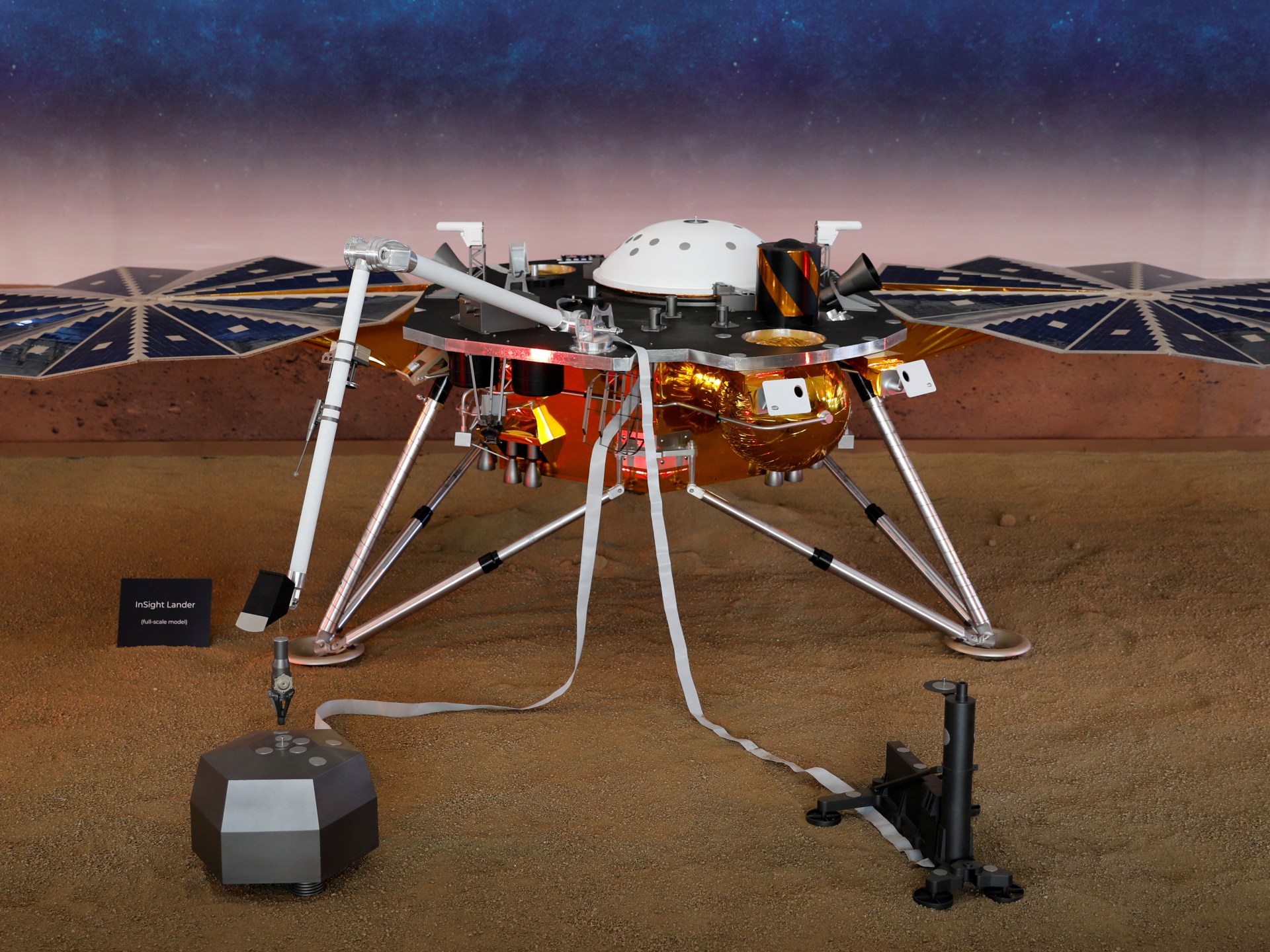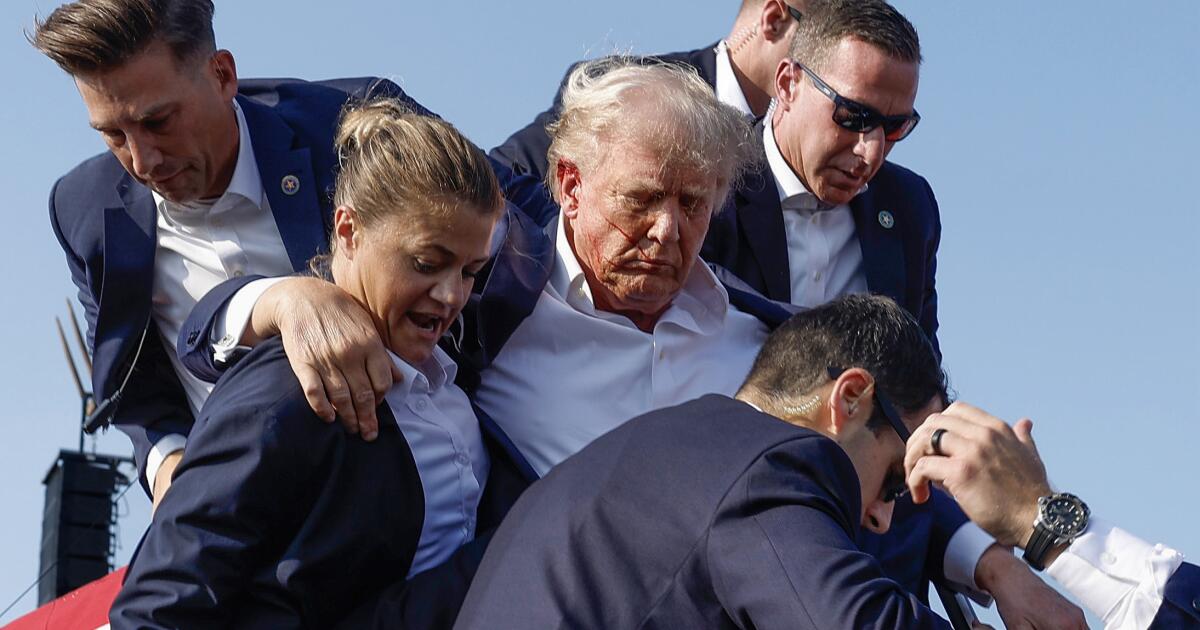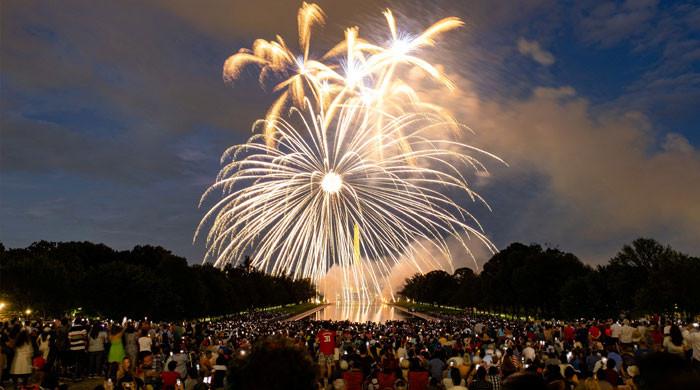Jimmy Carter wore a button-down shirt in Khartoum. It was a sweltering morning and the sun was shining over the Nile as the noisy city came to life. Carter was in the Sudanese capital to monitor the 2010 elections that were sure to extend the rule of autocrat Omar Hassan Ahmed Bashir, who had been accused of crimes against humanity.
Carter was not deterred. He believed that the first multiparty elections in decades, however flawed, would bring the war-scarred country closer to democracy. With blue eyes shining, pants ironed, the former president, a vagabond accustomed to the cruel and harsh situations of the planet, offered coffee and cakes in his hotel room. He was an optimist, but he knew well what could happen when leaders with enormous ambitions controlled holy men and armies.
I was in town covering the story for The Times and a representative from the Carter Center called me and invited me to breakfast.
Carter, who died Sunday at age 100, was president when I was a teenager. I knew him well from television: that haircut, that Southern accent, and that disarming determination as he faced a post-Watergate world of gas lines, inflation, the Iranian hostage crisis, and a sense that America was adrift. . His presidency had been much maligned. But his second act as a humanitarian, house builder, Guinea worm exterminator and Nobel Peace Prize winner was a portrait of perseverance and grace.
Carter, with his wife Rosalynn at the 1976 Democratic National Convention, was widely maligned for his presidency amid multiple crises, but he came to shine as a humanitarian.
(Associated Press)
An attendant greeted me when I entered the hotel room. She disappeared silently. Carter walked in and sat on a small couch. Coffee was served. A Danish, some fruit, slid onto a plate. Fishing boats bobbed in the currents below and tea ladies dressed in colorful feathers stoked the fire under blackened teapots in the corners.
Carter spoke about Sudan: its possibilities and dangers, and the fact that in the coming months the south of the country, with its vast oil reserves, would hold an independence referendum on whether to secede from the north. Would Bashir give up the south to let it be ruled by a cowboy-hat-wearing former enemy, presiding over a territory with less than 100 miles of paved roads and a population that was 80% illiterate?
Carter knew personalities and obstacles, egos and secrets, maps and ledgers. He had traveled through Sudan; Years earlier he had negotiated a ceasefire in his civil war. He always went to the source, to places of refugees, poverty, illness and despair. To see and bear witness, just like the Bible school teacher he was in Plains, Georgia. I didn't know what would happen. But I had hope.
The sun rose higher in the mid-morning sky. The room fell silent.
“It is based in Cairo,” he said.
“Yeah.”
He moved closer.
“Tell me things,” he said. “What's happening?”
I felt as if I was being interrogated by a man who had read countless files and knew intimately the rise and fall of power. It was both intimidating and invigorating.
Unrest and anger in the Arab world was approaching a breaking point that would erupt months later. Tunisia would spark nationwide protests. An uprising in Egypt would overthrow President Hosni Mubarak. The tremors would extend from Syria and Yemen and from Libya to Bahrain. When we met, there was little indication of what would happen, but the Middle East that Carter had spent so much time navigating was about to fall apart once again.
I primarily wanted to discuss the Israeli-Palestinian conflict and the possibilities, however remote, of any progress toward reconciliation on that front. In 1978, Carter had held talks at Camp David with Israeli Prime Minister Menachem Begin and Egyptian President Anwar Sadat that would lead to a historic peace treaty. Carter then believed (apparently wrongly, given the problems to come) that the pact would bring broader regional stability. And he hoped it would one day lead to a two-state solution for Israelis and Palestinians.

Carter celebrates in 1979 with Egyptian President Anwar Sadat (left) and Israeli Prime Minister Menachem Begin (right) after signing a peace treaty that Carter helped their nations reach.
(Associated Press)
Carter would later face criticism for his views on the topic. Many Jews and others were angered by his 2006 book, “Palestine Peace Not Apartheid,” which they believed portrayed Israel as an aggressor and was too sympathetic to Palestinians. Carter defended the book, as well as his meetings with Hamas, which critics said enhanced the stature of the militant group that the United States and Israel consider a terrorist organization. Carter later told an audience in Cairo that apartheid “is the exact description of what is happening in Palestine now.”
But his vision remained focused and his commitment to peace unwavering. Three years later, in his book “We Can Have Peace in the Holy Land,” Carter wrote: “Everyone involved in establishing peace in the Middle East is destined to make mistakes and suffer frustrations. We must all overcome the presence of hatred and bigotry, and the memories of horrible tragedies. We all must face painful decisions and failures in negotiations. However, I am convinced that the time has come for peace in the region.”
It was questionable then and it doesn't seem any less easy now.
Carter had been in a hospice facility since before Hamas attacked Israel on Oct. 7, killing about 1,200 people. Israel has been retaliating with an ongoing bombardment of the Gaza Strip that health authorities say has killed more than 45,000 Palestinians.
The Carter Center issued a statement late last year that said: “The violence must stop now. “There is no military solution to this crisis, only a policy that recognizes the common humanity of Israelis and Palestinians, respects the human rights of all, and creates a path for both societies to live side by side in peace.”
It would have been nice to have heard Carter's own voice, his Southern-inflected determination and traveler's wisdom.
What struck me most in that hotel room in Khartoum was his empathy and his insatiable need to know. He was relentless in his search, to trace threads and develop scenarios, to follow the big maneuvers and go where necessary, like to Sudan, where years before he had landed to try to help end the fighting between Bashir's troops and the rebels who later ascended. to power in a new country. Bashir was overthrown in 2019 and Sudan is once again in turmoil.
It is difficult to repair the most difficult corners of the world. To find justice amidst the stain of transgression. Carter's gift was his ability to wonder; know the bitter truths and imagine something better.

